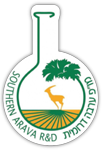Modern agriculture is one of the world’s largest contributors to global environmental change, yet it also holds significant potential to drive global sustainability (Rockström et al., 2017). The expansion and intensification of agricultural landscapes have led to widespread habitat loss and degradation, resulting in severe declines in biodiversity (Balzan et al., 2016). This decline is primarily driven by the increased use of chemical inputs, such as fertilizers, pesticides, and herbicides, which reduce the diversity and abundance of natural enemies and pollinators (Rusch et al., 2016). Consequently, critical ecosystem services essential for agricultural production, such as pollination and biological pest control, are compromised (Mei et al., 2021).
Addressing these challenges requires the restoration of biodiversity and ecosystem services within agricultural systems, achievable through practices that enhance key ecological functions like biological pest control and pollination. In recent years, ecological intensification has emerged as a promising strategy to reduce harmful environmental impacts while maintaining agricultural productivity. This approach focuses on enhancing biodiversity and ecosystem services by minimizing reliance on external inputs, thereby increasing the sustainability of farming (Garibaldi et al., 2019).
להמשך קריאה: Supplementation of wildflowers
